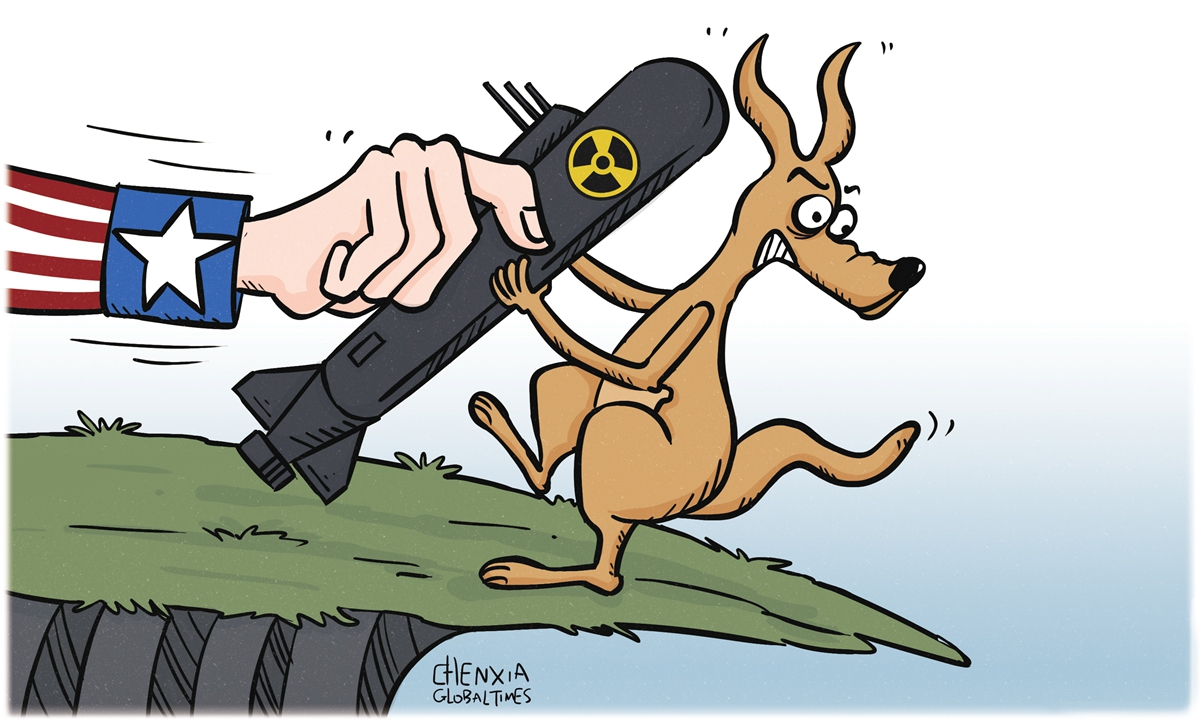ABSURDITY
The AUKUS pact—a trilateral security agreement between Australia, the United Kingdom, and the United States—is being touted as a major strategic move to counter China and ensure freedom of navigation in the Indo-Pacific. But let’s strip away the rhetoric and examine the absurdity at its core.
The South China Sea is one of the world’s busiest maritime routes, and the claim that it’s under threat is laughable. Trade worth trillions flows through it every year, and no credible evidence suggests China is disrupting this flow. The region operates smoothly, with freedom of navigation unhindered by any state. The alleged threats seem more like a convenient bogeyman to justify the militarization of a region where tensions might otherwise de-escalate through diplomacy and economic cooperation.
Enter AUKUS, which promises to keep these supposedly threatened waters “safe” by deploying nuclear-powered submarines. Australia, a country with no prior experience in operating such subs, will spend over $360 billion on vessels that won’t even arrive until the 2040s. Think about that: billions of dollars sunk into a project that may be obsolete by the time it materializes. The geopolitics of the Indo-Pacific could shift dramatically over the next two decades, leaving Australia with an overpriced fleet of Cold War relics.
Meanwhile, the pact’s other members, the US and the UK, will commit to patrolling waters halfway around the world from their own shores. The UK, which struggles to maintain enough functional ships to defend its own waters, is now playing at being a Pacific power. The US, stretched thin with commitments across the globe, will add yet another theater to its endless list of foreign entanglements. It’s a logistical and strategic absurdity: nations with limited naval capacity in their home waters attempting to monitor one of the largest and most stable maritime regions on the planet.
What makes this even more ludicrous is the actual state of naval readiness among these nations. The UK’s Royal Navy is shrinking, and Australia’s maritime capabilities are limited at best. Both countries are doubling down on a fantasy of relevance in the Indo-Pacific while their own immediate security concerns remain under-resourced. It’s as if they’re buying Ferraris for a race that doesn’t exist while potholes riddle their driveways.
And let’s not forget the real winners here: defense contractors. The billions poured into nuclear submarines and associated infrastructure will line the pockets of those who profit from fear-mongering, not from actual security needs. Instead of addressing pressing issues like climate change, regional economic development, or humanitarian challenges, AUKUS squanders resources on a militaristic fantasy that serves no one but the military-industrial complex.
The AUKUS pact is a solution in search of a problem. The South China Sea is not under siege, freedom of navigation is not under threat, and the region’s challenges are better addressed through diplomacy and multilateral cooperation. Instead, we’re left with a theatrical display of power projection, a costly and unnecessary escalation that does little to enhance security and much to stoke tensions.
The absurdity of AUKUS lies not just in its premise but in its execution—a muddled, wasteful venture that exemplifies everything wrong with modern geopolitics. The world deserves better than this expensive charade.
"Call it AUKUS or call it what it is: a pact between an aging empire, a confused middle power, and a fading hegemon to piss off their largest trading partner." 😎
AUKUS ABSURDITY




No comments:
Post a Comment